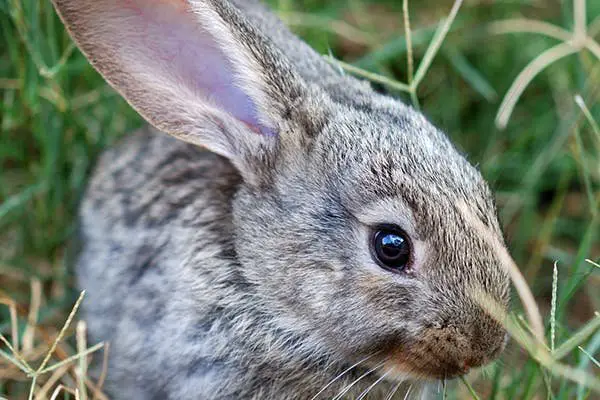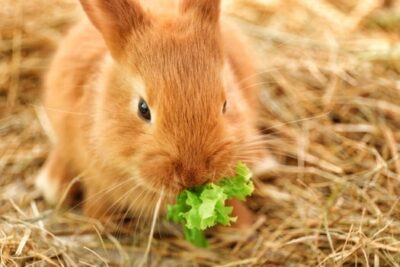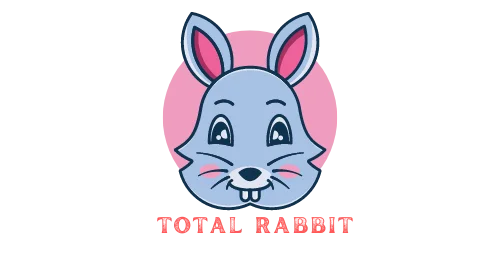What Causes Weight Loss in Rabbits And How to Help

There are many reasons why a rabbit may lose weight, some of which are more serious than others. The most common cause is simply not eating enough. This can be due to a change in diet, an increase in activity level, or even just stress from a new environment.
If your rabbit is not eating enough, you will need to help them by increasing their food intake and/or providing them with more calories. Other causes of weight loss in rabbits include gastrointestinal problems such as diarrhea or malabsorption, parasites, and infections. These conditions can be much more serious and require vet care.
If your rabbit is losing weight and you cannot find a reason why, it is best to take them to the vet for a check-up.
There are many possible causes of weight loss in rabbits, and it can be difficult to pinpoint the exact cause without professional help. However, there are some common causes of weight loss in rabbits that you should be aware of. These include:
-A change in diet: A sudden change in diet, or a lack of fresh vegetables and water, can cause your rabbit to lose weight. If you think this may be the case, try switching back to their old diet or giving them more fresh vegetables and water.
-Inadequate exercise: If your rabbit isn’t getting enough exercise, they may start to lose weight.
Try increasing their playtime or letting them roam around more often.
-Stress: Stress can also lead to weight loss in rabbits. If you think this may be the case, try to provide your rabbit with a calm environment and plenty of love and attention.
My Rabbit is Losing Weight But Still Eating
If your rabbit is losing weight but still eating, there could be a few different reasons for this. It’s important to take your rabbit to the vet to rule out any medical causes, but if everything comes back normal, here are a few other potential causes:
1. Your rabbit may be eating less due to stress.
Stress can cause rabbits to lose their appetite, so if there have been any changes in their environment (e.g., a new pet in the household), that could be the cause.
2. Another possibility is that your rabbit’s food isn’t as nutritious as it should be. If they’re not getting enough nutrients, they may start losing weight even though they’re still eating the same amount of food.
Make sure you’re feeding them a high-quality diet that includes plenty of fresh vegetables and hay.
3. Finally, some rabbits naturally tend to be on the thinner side. If your rabbit has always been on the smaller side and is now starting to lose weight, it’s possible that they’re just genetically predisposed to being thin and there’s nothing wrong with them health-wise.
However, if you notice any other changes in their behavior or appearance (e.g., lethargy, dull fur), it’s best to take them to the vet just in case something else is going on.
How to Help My Bunny Gain Weight
If your bunny is underweight, there are a few things you can do to help them gain weight. The most important thing is to make sure they have a healthy diet. This means providing fresh hay, vegetables, and a small amount of pellets.
You should also avoid giving them too many treats.
In addition to a healthy diet, you can also try some supplements. For example, adding a little bit of olive oil or flaxseed oil to their food can help increase their calorie intake.
You can also give them high-fiber foods like sweet potatoes or carrots to help them bulk up.
Finally, make sure your bunny is getting enough exercise. A good way to encourage this is by providing them with toys and plenty of space to run around in.
By following these tips, you should see your bunny start to gain weight in no time!
How Long Does It Take for a Rabbit to Lose Weight
If your rabbit is overweight, you may be wondering how long it will take for them to lose weight. The answer depends on a few factors, including the severity of their obesity, their age, and their overall health.
If your rabbit is obese, they may need to lose 20% or more of their body weight.
This could take several months to a year, depending on how much weight they need to lose and how well they respond to diet and exercise.
However, if your rabbit is only slightly overweight, they may be able to lose the excess weight in a matter of weeks. It’s important to work with your veterinarian to create a weight loss plan that’s safe for your rabbit and will help them reach a healthy weight.
I Can Feel My Rabbits Spine
Rabbits are unique creatures in that they have very delicate spines. Because of this, it’s important to be able to identify when something is wrong. One way to do this is by feeling your rabbit’s spine.
If you run your hand along your rabbit’s back, you should be able to feel each individual vertebrae. If you can’t, or if there are any lumps or bumps, then something may be wrong. This is especially true if your rabbit appears to be in pain or discomfort.
If you’re concerned about your rabbit’s spine, the best thing to do is take them to a vet for an examination. They’ll be able to tell you if there’s anything wrong and recommend the best course of treatment.
My Rabbit is Losing Weight And Fur
If your rabbit is losing weight and fur, it’s important to take them to the vet to rule out any medical causes. There are a few different medical conditions that can cause weight loss and fur loss in rabbits, so it’s important to get a diagnosis from a professional. Once any underlying medical conditions have been ruled out, you can focus on helping your rabbit regain their health.
There are a few different things you can do to help your rabbit gain weight and improve their fur coat. First, make sure they’re eating enough. A healthy diet is essential for rabbits, and if they’re not getting enough food they won’t be able to put on weight or keep their fur healthy.
Second, give them plenty of hay to eat. Hay is an important part of a rabbit’s diet and helps them stay healthy and maintain a good weight. Third, provide them with fresh vegetables and fruits as treats.
These foods are packed with nutrients that will help your rabbit regain their health. Finally, make sure they’re getting enough exercise. Exercise is important for all animals, but it’s especially important for rabbits since they tend to be sedentary creatures.
Getting them up and moving around will help them burn calories and build muscle mass.
If your rabbit is underweight and has thinning fur, don’t hesitate to take them to the vet and get started on a path to recovery!

Credit: www.rabbitcaretips.com
What Do I Do If My Rabbit is Losing Weight?
There are many possible reasons for why your rabbit may be losing weight, so it’s important to consult with a veterinarian to rule out any health concerns. Some potential causes of weight loss in rabbits include:
– parasite infestation
– inadequate diet
– lack of exercise
– dental problems
– gastrointestinal issues
If your rabbit is eating and drinking normally and there are no obvious health concerns, then you’ll need to take a closer look at its diet and lifestyle. Make sure that your rabbit is getting enough hay, fresh vegetables, and water every day.
It’s also important to provide plenty of opportunities for exercise, whether that means letting your rabbit run around outside or providing toys and tunnels for indoor play.
How Can I Help My Rabbit Gain Weight?
If your rabbit is underweight, there are a few things you can do to help them gain weight. The first step is to take them to the vet for a check-up to make sure there are no underlying health issues causing the weight loss. Once you have ruled out any medical causes, you can start working on increasing their calories.
One way to do this is by giving them higher calorie foods such as pellets that are high in fat and fiber. You can also add fresh vegetables and fruits that are high in sugar and water content to their diet. Another way to increase calories is by adding oils or butter to their food.
However, you should only do this if your rabbit is already eating a good amount of hay and fresh vegetables, as too much fat can lead to obesity and other health problems.
Finally, make sure your rabbit has access to plenty of water throughout the day. Dehydration can cause weight loss, so ensure they always have fresh water available.
If you follow these tips, your rabbit should start gaining weight in no time!
What Can Cause Weight Loss in Rabbits?
There are many potential causes of weight loss in rabbits, and it can be difficult to determine the exact cause without professional help. However, some common causes of weight loss in rabbits include gastrointestinal problems, such as digestive issues or gut stasis; parasites; dental problems; and stress. If your rabbit is losing weight, it is important to take them to a veterinarian for a check-up so that the cause can be accurately determined and treated appropriately.
How Can I Get My Rabbits Appetite Back?
If your rabbit has lost their appetite, there are a few things you can do to try and get them eating again. First, check that there is nothing wrong with their teeth. If their teeth are causing them pain, they may not want to eat.
You can also try offering them different types of food to see if they will eat something else. Some rabbits prefer fresh vegetables or fruits, while others like hay or pellets. You may also want to offer them a treat that they really love.
If nothing seems to be working, take your rabbit to the vet to make sure there is no underlying medical condition causing the loss of appetite.
What Causes Weight Loss in Rabbits and How to Help
Can Weight Loss in Rabbits Lead to Splayed Legs?
Weight loss in rabbits can potentially contribute to the development of splayed legs. Several causes of splayed legs in rabbits include malnutrition, genetic factors, lack of physical activity, and improper cage flooring. Consequently, weight loss can weaken the muscles, exacerbating the condition. It is crucial to provide a balanced diet and ensure appropriate exercise to prevent this issue in rabbits.
Conclusion
There are many potential causes of weight loss in rabbits, including digestive issues, dental problems, and even stress. If your rabbit is losing weight, it’s important to take them to the vet so that the underlying cause can be diagnosed and treated. There are also some things that you can do at home to help your rabbit regain their appetite and start eating again.
For example, offer them fresh foods and hay, make sure they have plenty of water, and provide them with a comfortable place to rest.
